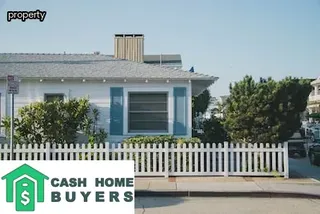When it comes to rental agreements, noncompliance can be a major issue for both landlords and tenants in Alaska. Landlords must ensure that their tenants are abiding by the terms of the agreement and that they are paying rent on time.
On the other hand, tenants must understand their rights and obligations under the law, as well as what is expected of them when it comes to keeping up with payments. Tenants who fail to comply with rental agreements can face eviction, court proceedings, or even criminal charges.
Understanding this lengthy process is key for both parties involved in order to avoid any unnecessary complications down the road. Additionally, landlords should be aware of the procedures for dealing with abandoned property left behind by a tenant who has not complied with their rental agreement and how those laws affect their rights as a landlord.

When it comes to understanding landlord-tenant laws in Alaska, security deposit rules are an important part of the equation. Security deposits are a form of protection for landlords, giving them the ability to recoup losses from tenants who fail to uphold their end of the lease agreement.
In general, Alaska landlords may require up to one and a half times the monthly rental amount as a security deposit. The regulations also stipulate that all deposits must be returned within 14 days of the tenant vacating the property.
Landlords have some leeway when it comes to abandoned property, with most states allowing them to keep any security deposit funds until the premises have been restored to its original condition. However, if a tenant abandons their rental unit without providing sufficient notice, they may be responsible for any damages incurred during their tenancy and may forfeit their right to receive their security deposit back.
It's important for both landlords and tenants in Alaska to become familiar with state laws regarding security deposits so that everyone is on the same page when it comes time for a tenant to move out.
When it comes to tenants withholding rent for repairs, landlords in Alaska need to understand their rights and responsibilities. In the state of Alaska, when a tenant withholds rent due to needed repairs, a landlord must make those repairs in a timely manner.
If the landlord fails to do so, the tenant can take legal action by filing a lawsuit or by filing in small claims court. It is important to note that if the tenant decides to take legal action, they must be able to prove that they have been denied services or are living in unhealthy conditions due to the lack of repairs.
Landlords also need to be aware that tenants are legally allowed to deduct repair costs from their rent payments if the cost is approved by an inspector. To make sure both parties are protected, landlords should maintain detailed documentation of all communication with their tenants regarding rental agreements and any repair requests or work completed.
Finally, if a tenant abandons property after withholding rent for necessary repairs, landlords should consult with an attorney about proper procedures for disposing of the abandoned property according to state law.

When a tenant abandons property in Alaska, it is important to understand the landlord-tenant laws that apply in order to protect both parties. Landlords must carefully adhere to the guidelines laid out by the state and should be familiar with their obligations under law when a tenant leaves behind belongings.
In general, these laws require landlords to store any abandoned items for at least 30 days and provide written notice of the abandonment. The written notice must include information about how the tenant can retrieve their property as well as details about what will happen if they do not collect it within that period of time.
Landlords must also make reasonable efforts to determine if the tenant has relatives or other contacts who may be interested in retrieving their belongings. If no one claims the property after 30 days, then landlords are generally allowed to dispose of it or donate it in accordance with local regulations.
Additionally, there may be specific rules that apply depending on whether an agreement has been terminated through eviction or voluntary surrender from the tenant's side. Understanding these laws is essential for landlords and tenants alike in order to ensure a fair resolution when dealing with abandoned property in Alaska.
When it comes to understanding Alaska's landlord-tenant laws for abandoned property, there are a few common reasons for noncompliance in leases. A tenant may fail to pay rent on time or at all, which is one of the most frequent causes of noncompliance.
Tenants may also neglect their upkeep responsibilities and leave their rental unit in disrepair, or they may breach the lease agreement by breaking the rules regarding occupancy limits or pet ownership. Additionally, tenants may abandon their rental unit without providing proper notice to the landlord.
All of these situations can result in a lease violation that can have serious consequences for both parties involved. It is important for landlords and tenants to be aware of Alaska's landlord-tenant laws when it comes to abandoned property so that both parties can properly protect themselves from potential legal issues down the road.

It is important for landlords in Alaska to be aware of the laws when dealing with abandoned property left by tenants. If landlords take the right steps to avoid tenant disputes, they can protect their business and ensure that their tenants’ rights are respected.
One strategy is to make sure all lease agreements are in writing and include a clear explanation of the landlord’s right to enter the premises if a tenant abandons it. Additionally, landlords should provide tenants with written notice before entering the premises so they have time to remove any personal belongings before the landlord takes possession of the property.
Landlords must also make sure they comply with local laws regarding storage and disposal of abandoned items, as well as providing proper documentation if they choose to sell or donate any abandoned items. Finally, landlords should keep accurate records of their interactions with tenants in case an issue arises down the line.
By taking these steps, landlords can rest assured that their rental property is being managed properly and that any disputes that arise will be handled according to Alaska law.
In Alaska, landlords are legally required to return a tenant's security deposit within 14 days of the tenant moving out. All deductions must be itemized and documented in a written statement that is delivered to the tenant.
Security deposits may not exceed two months' rent in Alaska, and must be held in an escrow account for which the landlord provides proof to the tenant. Landlords are also prohibited from charging a nonrefundable fee as part of the security deposit, though they can charge an administrative fee when it returns to the tenant.
The landlord must also provide tenants with receipts for all payments made and keep records of all such transactions. Finally, landlords must inform tenants of their rights under state law by providing them with a copy of the Alaska Landlord Tenant Act before entering into a lease agreement.

When it comes to understanding Alaska landlord-tenant laws for abandoned property, one of the most important things to consider is the factors that impact the return of security deposits. For instance, state law requires landlords to provide tenants with written notice before deducting any amount from a security deposit; this includes providing notice within 14 days of the tenant vacating a rental property.
In addition, landlords are obligated to return any remaining balance of the security deposit within 30 days. When determining whether a tenant should receive their full or partial security deposit back, landlords must assess several criteria such as the condition of the rental unit upon move-out inspection and any damages incurred during tenancy.
Additionally, if there are unpaid rent or utility bills owed by the tenant at move-out, these must be taken into account when deciding how much of a refund should be issued. Landlords also have an obligation to make reasonable attempts to contact former tenants in order to inform them about their refund eligibility and how much will be returned.
Ultimately, Alaska landlord-tenant laws for abandoned property dictate that all parties involved should adhere to these regulations in order for everyone's rights and interests to be respected and protected.
When it comes to understanding Alaska landlord-tenant laws, documenting repairs and rent payments is one of the best practices for both landlords and tenants. It's important that both parties keep detailed records of all repairs or maintenance done on the property, as well as records of rent payments made by the tenant.
This can help protect landlords from potential liabilities, while also helping tenants if the property is abandoned and they need evidence of their payments. Keeping a detailed record of repair requests, completed repairs, and rent payments can help both landlords and tenants avoid any legal issues that could arise in the event of an abandonment situation.
Furthermore, providing proof of payment or repair records may be necessary in order to recover a security deposit after an abandonment. Understanding Alaska's landlord-tenant laws for abandoned property will help ensure that both parties have proper documentation to protect themselves against any potential legal disputes.

In Alaska, landlords and tenants have many obligations and rights that they must adhere to. Landlords are responsible for providing a safe and secure living environment with basic amenities such as heat and hot water.
They also need to meet safety code requirements set forth by the state. Tenants, meanwhile, need to pay their rent on time and inform their landlord of any repairs or maintenance needed.
They are also entitled to privacy in their rental unit and must not damage the property beyond normal wear and tear. Both landlords and tenants should familiarize themselves with all applicable laws concerning abandoned property, such as how long a tenant has to remain in the rental unit after leaving before it can be considered abandoned by the landlord.
Additionally, it's important for both parties to understand any additional steps that must be taken when a tenant abandons their rental unit in order to protect their rights as well as those of the landlord.
When resolving tenant disputes, it's important to be familiar with Alaska landlord-tenant laws. Knowing the legal framework surrounding abandoned property can help landlords identify practical strategies for quickly resolving tenant disputes.
One strategy is for landlords to perform regular inspections of rental units and document any issues or concerns. This will provide evidence if the landlord needs to take legal action in the future.
It's also important for landlords to always keep records of communications with tenants and other relevant information that could be used during a dispute resolution process. Furthermore, it's beneficial for both parties to consult a knowledgeable attorney when navigating potential landlady-tenant conflicts related to abandoned property.
Finally, having a well-crafted lease agreement in place can provide clear expectations on both sides and help avoid misunderstandings that can lead to disagreements. Understanding Alaska landlord-tenant laws and utilizing these practical strategies can help facilitate an efficient dispute resolution process.

When considering penalties for nonpayment of rent, it is important to understand the Alaska Landlord-Tenant laws governing abandoned property. A landlord must take the necessary steps to protect their rights and ensure that any consequences fit within the scope of the law.
This includes providing a 30-day notice for tenants who have not paid rent in full or on-time, as well as a proper abandonment notice if tenants are no longer living in the rental unit. Additionally, landlords should understand their right to deduct unpaid rent from a security deposit as well as document any past-due payments and damage caused by the tenant.
Finally, landlords should be aware of the legalities behind disposing of abandoned items left behind by former tenants, such as ensuring that they do not keep any items that could be considered personal property. By understanding these laws and taking appropriate action, landlords can avoid potential risks associated with nonpayment of rent and protect their interests.
If a tenant breaches the rental agreement, there are several options available to the landlord. The most common option is to terminate the lease and require that the tenant vacate the premises.
This can be done by providing written notice of termination and may require legal action if the tenant does not comply. Landlords may also pursue other remedies such as money damages or court-ordered injunctions in some cases.
Additionally, Alaska landlord-tenant laws allow landlords to seek reimbursement for any costs associated with recovering abandoned property, including lost rent and reasonable attorney’s fees. Finally, landlords have an obligation to mitigate their damages by attempting to re-rent the unit as soon as reasonably possible in order to reduce their losses from an eviction or abandonment.

Notifying tenants of a breach of contract is an important step in understanding Alaska landlord-tenant laws for abandoned property. It's essential to have a clear system in place that outlines the process for communicating any changes or developments in legal agreements.
The first step is to contact the tenant and provide them with written notification that outlines the breach of contract. This should be done as soon as possible, preferably within 24 hours of discovering the breach.
Depending on the circumstances, landlords may also need to send follow-up notifications and reminders. Verbal communication is important, but it should always be backed up with written documentation to ensure accountability and avoid potential disputes.
Additionally, landlords should make sure all notifications are sent via certified mail or other secure means to provide proof of delivery. By implementing an effective process for notifying tenants about a breach of contract, you can better understand Alaska landlord-tenant laws for abandoned property and protect your rights as a landlord.
In Alaska, there are specific landlord-tenant laws that landlords and tenants must abide by when it comes to abandoned property. These laws determine what happens to any belongings that are left behind after a tenant has vacated their rental unit.
The state’s landlord-tenant laws outline the necessary steps a landlord must take in order to dispose of abandoned property, including providing written notice to the tenant and giving them a designated period of time to respond or reclaim their items. If the tenant fails to respond or reclaim the items within the stated period of time, then the landlord is legally allowed to dispose of them as they see fit.
Additionally, Alaska law also outlines how landlords must store and protect any abandoned property until it can be disposed of properly. It is important for both landlords and tenants to understand these regulations so that rights are fully protected and potential disputes can be avoided.

When it comes to disagreements between landlords and tenants in Alaska, communication is key. It's important to remain professional, honest, and respectful when communicating with tenants.
Landlords should also make sure they are familiar with the relevant laws in their area, as this can help protect them from claims of unpaid rent or damage to property. To avoid costly legal action after eviction, landlords should ensure that they follow all applicable procedures during the eviction process and treat their tenant fairly.
Landlords should know their rights under Alaska landlord-tenant law and understand the ramifications of evicting a tenant without providing proper notice or following the correct steps. Additionally, if there is any dispute about abandoned property after an eviction has been completed, it's important for both parties to consult the relevant statutes to ensure that each person is treated fairly.
The abandoned property law in Alaska requires landlords to take certain actions when a tenant abandons their rental property. Under the law, the landlord must make reasonable efforts to determine if the tenant intends to return and reclaim their property.
If a landlord believes that a tenant has abandoned the rental unit, they must then notify the tenant in writing of their intent to dispose of the abandoned property within 15 days. The landlord must also store any remaining personal possessions for at least 30 days and make them accessible to the former tenant or anyone representing them.
After 30 days, if there is no response from the tenant, the landlord is then able to either keep or sell any of the remaining personal belongings or donate them to charity. It is important for landlords and tenants alike to understand these laws before entering into an agreement; failure to comply can result in legal action being taken against either party.

In Alaska, a landlord cannot unlawfully enter the tenant's dwelling without permission or proper notice. A landlord must also provide 24 hours’ notice before entering the property, unless there is an emergency.
Landlords in Alaska are also not allowed to lock out tenants without a court order and must adhere to eviction procedures set forth by state law. They may not remove or dispose of abandoned property left behind by tenants without following strict rules and regulations regarding notification and disposal.
Additionally, landlords cannot use threats of force or violence against tenants or their guests or family members as a way to gain possession of the rental unit, nor can they charge additional fees for late rent payments beyond what has been outlined in their lease agreement. Lastly, landlords may not retaliate against a tenant for exercising their rights under Alaska's landlord-tenant laws.
The process of evicting a tenant in Alaska is subject to several state laws and regulations. It typically takes an Alaska landlord approximately 60 days to fully evict a tenant, depending on the circumstances.
This timeline can be shortened if an expedited eviction process is available in the jurisdiction where the rental property is located. To initiate an eviction, a landlord must serve the tenant with a written notice to vacate the premises and file a complaint with the court.
The court will then issue a summons for a hearing before an Eviction Magistrate or Judge, usually within 20-30 days. After the hearing, if the judge finds for the landlord, they will issue an Order for Possession giving the tenant 14-21 days to vacate the premises.
If they do not comply with this order, then law enforcement may be called upon to remove them from the property.
In Alaska, landlords must provide tenants with a 7-day eviction notice to vacate the premises due to nonpayment of rent. The landlord must give the tenant written notice that includes the amount owed and the date by which it must be paid.
If the tenant does not pay the full amount owed within seven days, then the landlord may file for an eviction in court and proceed with legal action to remove them from the property. Additionally, if a tenant abandons the property without notifying their landlord, they may still be liable for any unpaid rent or damages caused to the property.
In these cases, landlords should take appropriate steps to reclaim their abandoned property according to Alaska’s Landlord-tenant Laws.
A: According to the Alaska Landlord-Tenant Act, if a tenant abandons the property, a landlord must use reasonable efforts to re-rent it at fair market value. If they are successful in doing so, they can deduct any unpaid rent or other associated costs from the security deposit. However, if they cannot re-rent it, the landlord may take legal action to recover unpaid rent and other costs of repossession. In addition, landlords cannot increase rent or impose late fees while attempting to re-rent the property.
A: According to the Alaska Landlord-Tenant Act, the landlord must make reasonable efforts to mitigate damages caused by the tenant's abandonment and may enter the premises to make necessary repairs or take other steps to maintain the condition of the property.